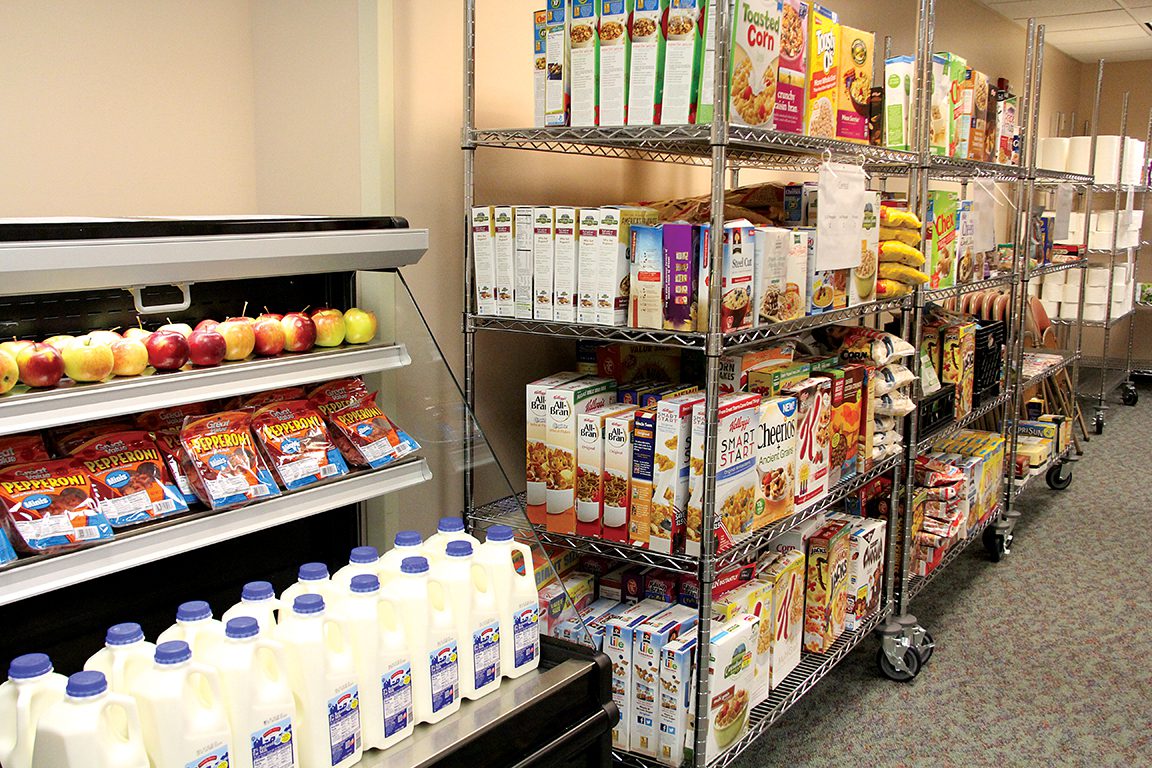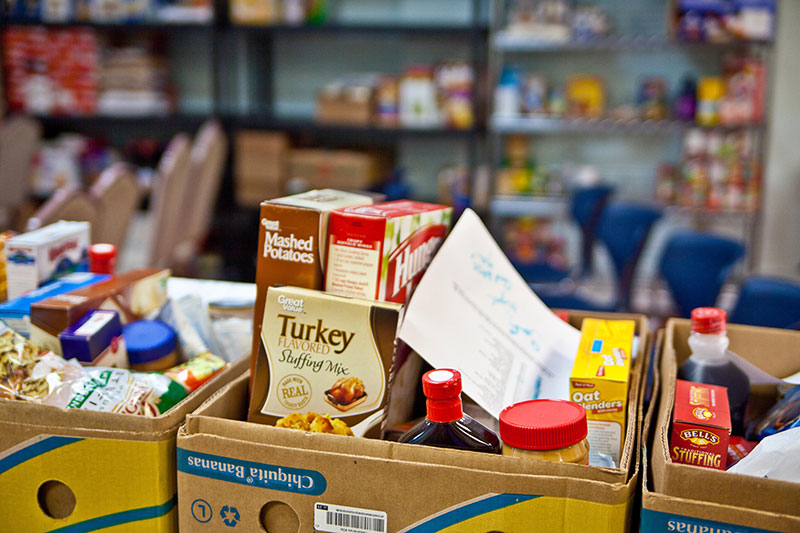Why Supporting Your Neighborhood Food Cupboard Is Essential for Aiding Those in Need
The relevance of sustaining neighborhood food pantries can not be overemphasized, particularly in the context of food instability, which impacts a startling number of people and households within our neighborhoods. These crucial sources not just offer immediate remedy for cravings however likewise contribute to broader social advantages, consisting of improved wellness and instructional end results. As we check out the complex role of food kitchens, it ends up being evident that their influence prolongs far beyond merely distributing food (Food Pantry Lockhart). Recognizing this much deeper connection might prompt a reconsideration of just how we involve with and sustain these critical establishments.
Recognizing Food Instability
Food insecurity impacts approximately 10.5% of families in the USA, highlighting a considerable public health and wellness issue that goes beyond mere appetite. It refers to the absence of constant access to sufficient food for an active, healthy and balanced life. This problem can lead to a variety of damaging outcomes, including inadequate wellness, enhanced health care costs, and decreased scholastic performance among kids.
The causes of food insecurity are multifaceted, frequently originating from economic factors such as underemployment, poverty, and unemployment. Geographical area can additionally play an essential function, with food deserts-- areas with restricted access to cost effective and nourishing food-- worsening the issue - Food Pantry Lockhart. Furthermore, systemic variables, including racial and social inequities, add to the disproportionate influence of food instability on marginalized neighborhoods
Resolving food instability is not merely about enhancing food supply; it requires a detailed technique that encompasses financial security, education and learning, and community support. Food insecurity not only impacts individual health but likewise has more comprehensive effects for societal health and performance. Recognizing its complexity is essential for developing effective interventions and cultivating long-lasting solutions that ensure all people have dependable accessibility to nutritious food.
The Function of Food Pantries
Local food pantries work as crucial lifelines for individuals and families encountering food insecurity. They offer essential food products to those that might battle to afford adequate nourishment due to economic challenge, unemployment, or unpredicted circumstances. By distributing food at no charge, these organizations help relieve hunger and avoid the unfavorable wellness impacts connected with insufficient diet regimens.
Food pantries commonly partner with neighborhood ranches, food store, and community companies to source a range of healthy food products, consisting of fresh fruit and vegetables, dairy products, and healthy proteins. This partnership makes sure that pantry clients obtain not just nourishment yet likewise much healthier choices that contribute to total well-being.
Additionally, food kitchens work as community centers, cultivating connections amongst residents and providing a feeling of dignity to those in requirement. Many kitchens use added sources, such as nourishment education and learning and references to social solutions, helping customers browse their challenges better.
Fundamentally, food kitchens play a diverse function in combating food insecurity. They not only address immediate cravings yet additionally encourage people and households to improve their conditions, thus advertising community strength and why not check here cohesion.

Advantages of Supporting Food Pantries

Sustaining food pantries not only nurtures those in need yet likewise enhances the fabric of the community. By giving essential food sources, food pantries ease hunger and lower food insecurity, which is important for the health and well-being of families and individuals. Accessibility to nourishing food contributes to improved physical health, better academic end results for youngsters, and improved mental health, thus fostering a much more effective and engaged community.
Furthermore, sustaining food pantries promotes social communication. These organizations work as hubs for neighborhood involvement, bringing with each other volunteers, benefactors, and recipients in a shared goal to deal with hunger. This collaboration can damage down barriers, foster understanding, and develop relationships among diverse area participants.
Furthermore, donations to food kitchens, whether in the form of food, funds, or time, stimulate the regional economic climate. Many food kitchens prioritize sourcing from local producers, hence supporting neighborhood agriculture and companies. This creates a cycle of support that profits not only those in requirement however the area in its entirety.
How to Obtain Entailed
Interaction with food cupboards can take many types, enabling teams and individuals to make a significant influence in their neighborhoods. Monetary contributions are likewise invaluable, as they enable food cupboards to purchase fresh fruit and vegetables and essential materials.
Volunteering your time is an additional impactful method to support regional food kitchens (Food Pantry Lockhart). In enhancement, take into consideration arranging food drives within your institution, neighborhood, or workplace group to increase recognition and gather sources.
Collaborations with local businesses can better improve support for food pantries. By taking these groups, actions and individuals can significantly boost the initiatives of regional food pantries and aid those in need.
Area Impact and Link
Acknowledging the profound influence of food kitchens on area health is important for promoting a spirit of link and cooperation. Food cupboards offer not only as crucial sources for those encountering food insecurity however also as hubs for neighborhood involvement. They unite varied teams-- customers, volunteers, and donors-- producing a setting where people can support and attach one an additional.
The effect of food kitchens prolongs beyond simple provision of food; they serve as a catalyst for social cohesion. By joining cupboard campaigns, area participants can create relationships that transcend socioeconomic obstacles. This network of support helps to take apart the stigma commonly connected with food help, promoting an environment of approval and understanding.
As people unite in their efforts to sustain neighborhood food pantries, they grow a feeling of shared objective and obligation, reinforcing the concept that everybody has a function to play in making certain official statement that no one goes hungry. Inevitably, sustaining food pantries strengthens the material of the neighborhood as a whole.
Verdict
Sustaining regional food kitchens is important in combating food instability and improving the wellness of prone populations. Interaction with food cupboards promotes neighborhood links, advertising social cohesion and equity.
